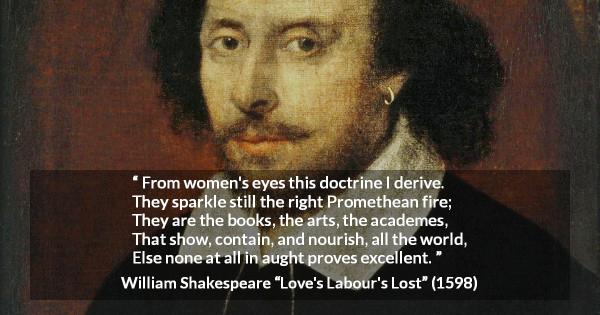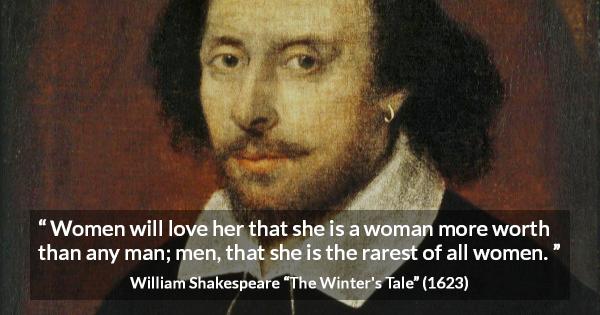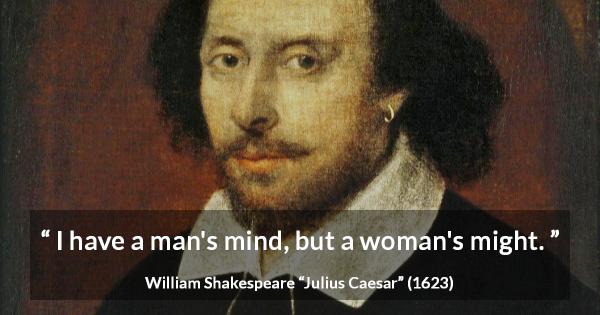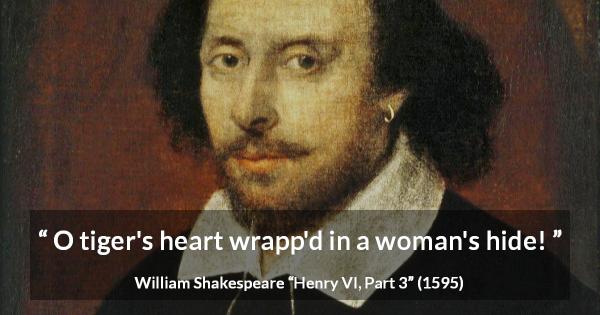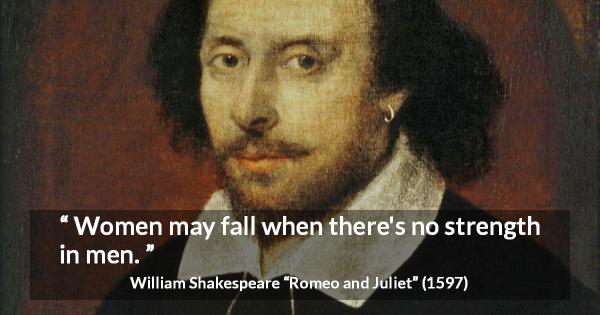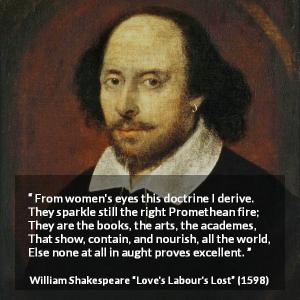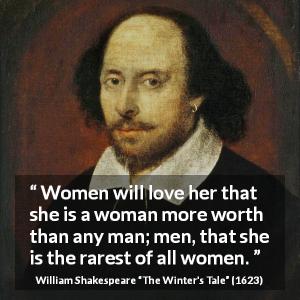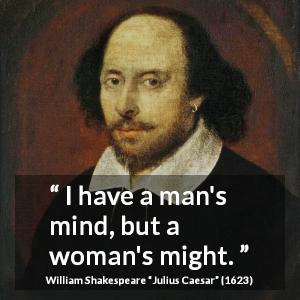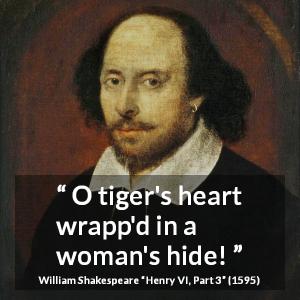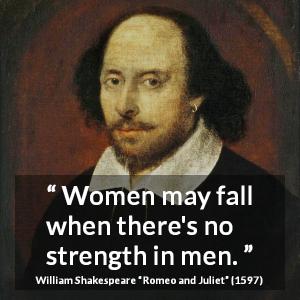William Shakespeare quotes
English (707)
Français (248)
Related sources
Hamlet (37)
Othello (30)
Richard III (21)
Much Ado About Nothing (31)
The Tempest (24)
Macbeth (28)
Richard II (18)
Twelfth Night (21)
King Lear (25)
Antony and Cleopatra (17)
Julius Caesar (24)
The Merchant of Venice (21)
Henry V (17)
Troilus and Cressida (16)
Measure for Measure (18)
The Taming of the Shrew (15)
Henry VIII (14)
As You Like It (24)
Titus Andronicus (10)
King John (12)
Coriolanus (10)
Venus and Adonis (7)
The Merry Wives of Windsor (8)
A Midsummer Night's Dream (23)
The Comedy of Errors (7)
Cymbeline (12)
Henry IV, Part 2 (20)
Henry VI, Part 3 (18)
Love's Labour's Lost (17)
Shakespeare's Sonnets (15)
All's Well That Ends Well (14)
Henry IV, Part 1 (14)
Timon of Athens (13)
The Winter's Tale (13)
The Two Gentlemen of Verona (12)
Henry VI, Part 2 (11)
The Rape of Lucrece (5)
Henry VI, Part 1 (10)
Pericles, Prince of Tyre (5)
Info
William Shakespeare was an English poet and playwright. He was baptized on April 26, 1564 and died on April 23, 1616 in the city of Stratford-upon-Avon. Shakespeare is considered one of the most important English-speaking writers, so that English is often called "language of Shakespeare". His work is one of the most widely translated in the world.
Shakespeare's life has given rise to many rumors and theories, as there are not many historical elements that trace it. Nevertheless, his biography is now considered to be quite reliable.
Shakespeare's work contains about 39 plays covering both comedy and tragedy, as well as more than 150 sonnets. His powerful literary style has brought many of his expressions into everyday language. In the same way, the various themes and the complexity of the psychology of his characters have left a major imprint in the world literature.
Shakespeare's life has given rise to many rumors and theories, as there are not many historical elements that trace it. Nevertheless, his biography is now considered to be quite reliable.
Shakespeare's work contains about 39 plays covering both comedy and tragedy, as well as more than 150 sonnets. His powerful literary style has brought many of his expressions into everyday language. In the same way, the various themes and the complexity of the psychology of his characters have left a major imprint in the world literature.
Links
William Shakespeare quotes about love · William Shakespeare quotes about women · William Shakespeare quotes about beauty · William Shakespeare quotes about wisdom · William Shakespeare quotes about men · William Shakespeare quotes about life · William Shakespeare quotes about death · William Shakespeare quotes about time



